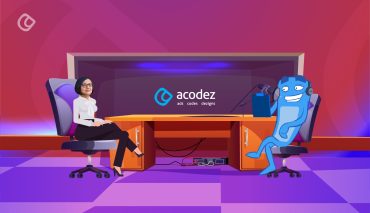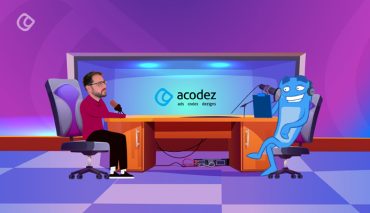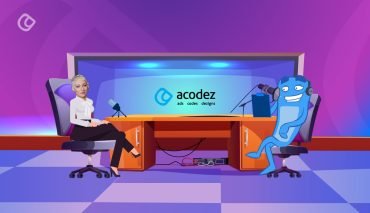Fili is a technical SEO consultant, ex-Google engineer, frequent conference speaker and was a senior technical lead in the Google Search Quality team. At Search Brothers he offers SEO consulting services with SEO audits, SEO training and successfully recovers websites from Google penalties.
➢ What inspired you to transition from your role as a Google engineer and technical lead to starting your own SEO consultancy, SearchBrothers? How does your experience at Google contribute to the value you bring to your clients in the SEO industry today?
Working at Google Search has been a tremendously rewarding experience. The opportunity to improve a product used and loved by billions of users is second to none. At the same time I’ve had the privilege to meet and work with extraordinary colleagues. An experience I continue benefiting from professionally as much as personally. I’ve been an entrepreneur before joining Google and was keen to apply the knowledge gained during my tenure at Google Search to build something new. An opportunity arose when I joined forces with another Google Search colleague, Kaspar Szymanski. We’ve had an extraordinarily successful work relation at Google search already and decided to continue working together under a new, our own brand. This is how the SEO consulting agency SearchBrothers.com was born.
It is our both, direct Google Search experience, which gives us a tremendous competitive advantage. Rather than guessing what’s happening, we know how Google Search actually works. It’s a big part of our unique selling proposition. The extraordinary insights gained during our respective tenures at Google Search is a huge advantage to us and one that we choose to pass on to our clients.
➢ With your extensive knowledge and experience in Google webmaster policies and penalties, what are some common mistakes that website owners make that can lead to penalties, and how can they avoid them?
Prioritization tends to stand out in this regard. Many, even knowledgeable organizations simply do not focus on the areas that offer them the best growth opportunities. Google rankings, even for the most competitive queries, are the result of signal input. That input can be optimized. At the same time all organizations, even the largest ones, have only finite resources to expand on any given project. Focusing on what actually matters is the key to SEO success. That’s often where we come in, to identify based on relevant, fresh data what these priorities are and how to go about their implementation. It’s important to keep in mind that when it comes to rankings there’s no glass ceiling. Google does not cap organic traffic. It is therefore always worthwhile to strive to improve high impact SEO signals and in doing so reach more interested users and clients.
➢ Technical on-page SEO plays a crucial role in website optimization. Could you highlight some key technical elements that businesses should focus on to enhance their website’s visibility and performance in search engines?
While there are few SEO silver bullets, the web platform’s performance is among the top signals which can make or break rankings. Every website is different, but all other signals being roughly equal, Google will show preference for the faster loading website. This is because Google believes that users prefer faster over slower loading websites. Which is why speed is everything!
➢ Drawing from your extensive experience in the digital field over the years, could you share insights on how businesses can develop a comprehensive SEO strategy that aligns with their long-term goals and objectives? Additionally, what would you identify as the most critical metrics or indicators to track for measuring the success of a technical SEO campaign, and how do you interpret and act on those metrics?
Defining a comprehensive SEO strategy can be a complex task. It has to be drafted in the context of the website’s product or service, its size, the technical acumen of the team responsible for the website’s development and importantly with the available budget in mind. Similarly to every single website’s SEO strategy being unique, so are its relevant performance metrics. For example, for a considerably large retail website, with fast seasonal merchandise and changing availability, crawl budget is critically important.
That’s because if the relevant, revenue generating landing pages of the website are not being crawled frequently enough, users will be confronted with expired or unavailable product pages, leading to a decline in both sales and user signals. The latter ultimately can be triggering a decline in organic Google rankings. For a smaller website, with mostly static content other factors, such as performance and unique selling proposition may be much more important. There are of course many other potentially important factors, applicable to different SEO scenarios. This is why defining a successful SEO strategy and relevant KPIs can only be done in the context of a specific website.
➢ As a speaker at SMX and other marketing events, what are some key topics you often address, and why do you think they are important for SEO professionals to understand?
It’s an absolute privilege to contribute to public events and I always strive to make sure for the audience to walk away for actionable advice. I try to address non trivial SEO matters, often touching on technical SEO signals and Google policies. Google penalties is a particularly popular topic I’ve frequently talked about. Presenting in front of large, interested crowds of fellow professionals also offers an unparalleled opportunity to debunk persisting industry myths, both during my public, live Q&A as much as in more private discussions after my presentation. Other than a chance to share from my rather unique Google Search knowhow, I particularly enjoy public speaking because it also represents an opportunity to learn from other peoples experiences, including from these informal conversations with the audiences.
➢ When optimizing for technical on-page SEO, what are some best practices that businesses should implement to ensure their website is optimized for both search engines and user experience simultaneously?
Search engine optimization and user experience optimization are best viewed as two sides of the same coin. Afterall it makes little sense to prioritize just one over the other. It is both a rather fascinating and highly complex topic. However, when we’re talking best practices for business, selecting an uber fast, extremely reliable hosting service is an important factor. AWS is an obvious and highly recommended choice in this regard. Nothing can beat Google Cloud Services though, not least because their physical proximity to the Googlebot is as good as it gets.
➢ Over the years you’ve been deeply involved in the SEO field, what significant changes have you witnessed in the industry, and how have these changes influenced your approach to SEO consulting? Additionally, what innovative strategies or advancements do you foresee bringing to the forefront in the future of SEO.
It’s interesting to look back at the way Search has progressed over the years. On the one hand there’s been constant development, fueled as much by the never ending hide and seek game black hat SEO’s play with Google, as by technical innovation. Of the latter, not everything proved to live up to expectation. Some of yesterday’s hyped Search trends ended up being ultimately sunsetted. AMP is just one of many examples. In that sense everything, including SERP representation and the way we as users approach Google Search has changed. At the same time, fundamentally Google Search remains what it was from day one: rankings are the result of signal input. Of course signal prioritization does shift but the basic principle remains unchanged. This is why companies that approach SEO with a steady, ongoing perspective rather than jumping on the latest hype, tend to dominate SERPs. My advice is to embrace new developments, especially technological solutions, in the context of an existing long term SEO strategy.
If you like to feature your story through an interview with Acodie, feel free to contact us. For more information and queries, visit our website.
Acodez is a leading web development company in India offering all kinds of web design and development solutions at affordable prices. We are also an mobile app development company in india offering Robust & Scalable Mobile App Development to take your business to the next level.
Looking for a good team
for your next project?
Contact us and we'll give you a preliminary free consultation
on the web & mobile strategy that'd suit your needs best.






